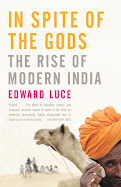In a sociology course I am enrolled in, we are discussing the family through a global perspective, which got me thinking about family in the micro-perspective. I set out to answer these questions:
Why is the family so important for people and societies? What do we learn in families? What forms to families take? What about the alternative family forms, such as same sex marriage? What are the social and political implications for society of legalizing same sex marriages?
A family is the smallest unit of society in which we arrange ourselves. We are born into families , we live our lives influenced by the cultural values we learn from our families, and when we depart, we are mourned by our families. As human beings, we connect to other humans during the course of our lives through alliances known as relationships. The first relationships that we build in life however are relationships with our families whom we live with and interact with every day. It is often found in psychology that our adults lives are immensely affected by both relevant and seemingly irrelevant experiences from our childhood. During our childhood, we learn from and in our families, how we will live our lives 'outside'. Based on the relationships that we create within our families, we seek out either similar or dissimilar ones with other members of other families to whom we have something different{from their familial relationships} to offer and vice versa. These families and the relationships between them, be they economic or social band together to form societies. Without our families to serve as the 'base camp' for cultural values and human relationship, integration with other members of society would be difficult, and perhaps even impossible.
Family forms have taken different patterns over time, although all the present ones have existed before in historic times. The nuclear family is perhaps the most common, and is defined by a mother, father and their children. The nuclear family sometimes is defined by a single parent, and in the modern world, perhaps by two parents of the same sex. While there is resistance to consider a family with same-sex parents a nuclear family, I believe that a nuclear family is structurally characterized by the presence of two parents, regardless of gender. The principal characteristic is that the group is united by parenthood. By default of the definition of two parents, nuclear families are characterized by polygamy, which is the marriage ot only one spouse. The extended family is still common in many traditional societies today, and is defined by a grouping of additional relatives such as aunts and grandparents with the nuclear family.
Polygamy, the marriage of more than one spouse is a cultural aspect that has become less socially acceptable in the modern world, especially with the progress made on women's rights. This is because polygamous marriages were often found to be patriarchal and ignorant of the right of a woman to choose. The polygamous family does not easily fall into the category of either nuclear or extended family.
With the creation of new families over times, rules for descent are usually established in families and societies. In patrilineal descent, inheritance is transferred between father and son. In matrilineal descent, inheritance is transferred from a mother's brother to the children of that brother's sister. According to Dr. Nelson's Sociology in the Global Perspective, both systems of decent have disadvantages to the members of the family .The patrilineal descent risks the end of the line of descent if there are no male heirs, and the matrilineal descent places too much pressure on fathers.
Democratic movements such as gay rights movements and increasing individualism across the world have led to alternative forms of family organization. Those who no longer view marriage as a necessary event to signify their long-standing relationship are choosing more and more to cohabitate. Those in homosexual relationships choose to cohabitate anyway because the law does not allow them to officially pronounce their relationship with a marriage. The increase in divorce rates over the past two decades may also have led some to simply cohabitate, perhaps because it gives them a sense of more personal freedom.
The subject of same-sex marriage is the most popular in today's discussion of family life. The proponents believe that two parents of the same sex can provide the same quality of child-rearing that two heterosexual parents can. Opponents counter that this is untrue, that two parents of different sexes have different and important values to offer to child-rearing. I believe that good parents, regardless of sex will provide the quality child-rearing that the child needs. It is the personality of the parent, not their sex, that determines whether they will provide their child a well-rounded and healthy childhood. Legalizing same-sex marriage would reduce the tension and resulting violence against brought about by the same-sex relationships debates, It is also likely to increase social tolerance of individuals towards those who may not agree with their ideals which can make for more harmonious social relations. This harmony could also translate to the political area, where once legalized{same-sex marriage} , the focus on same-sex debates could be shifted to issues that are more pertinent to the basic needs of every member of society. The basic needs of a person have been brought under threat by the economic crisis, and it is important that this issue be resolved because the livelihood of many is at stake.
Sociology in Global Perspective, Lynn Nelson ISBN: 0-9663792-0-9








No comments:
Post a Comment